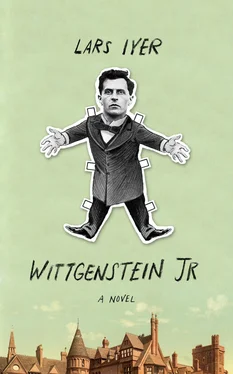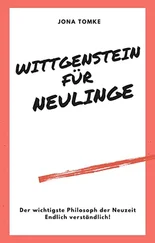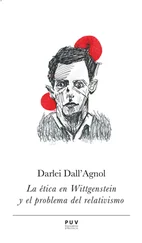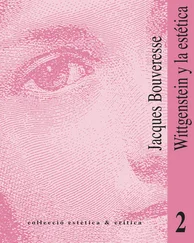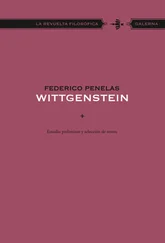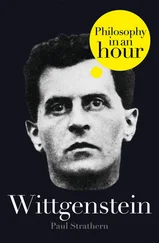What does God want with him, by letting him live?
He has the sense of being martyred , but for no cause in particular.
He has the sense of being bereft , but without having lost anything in particular.
Homertown Street. Clone-town shops. Concrete and metal. Absolute blandness.
Thought, and the derangement of thought, he says. How to distinguish between them?
A break down , a break through : how to distinguish between them?
There is a cost to thought, he says. He’ll pay with himself . He’ll sacrifice himself .
• • •
Death, he says. He is drunk with death.
He can hear it: death is sharpening its knife. He can hear it: death is running its blade along the whetstone.
Death is coming, he says. Death will whistle around him like an Arctic storm.
Tea, among the tourists in the Copper Kettle .
Last night, he thought he saw the dons, looking up at his window and pointing, Wittgenstein says. He thought he heard the dons, shuffling up and down the stairs outside his room. He thought he sensed them, pacing back and forth on his landing. But when he looked out through his spyhole, there was no one there.
The dons are really pacing in his head , Wittgenstein says. The dons have set up court inside him. The dons are pronouncing judgement on him from the inside. A crowd of dons, jeering at him inside. Sneering and jeering : that’s all he can hear inside his head, he says. There are hundreds, if not thousands, of dons, jostling inside him. A whole crowd of dons sneering inside him.
What do the dons want from him? What do they expect? What did they think he could bring to the university? What did they think he could contribute? Couldn’t they see the kind of person he was? Wasn’t it clear ? He’s never tried to hide what he is, Wittgenstein says. He’s never pretended to be what he’s not. His face — couldn’t they read his face? Wasn’t everything written there, on his face?
What did the dons think they’d found in him? Wittgenstein asks. Who did they think they had brought to Cambridge? He was a curio, at first. A real find. Did they think he’d entertain them during the long winter nights? Because the dons need amusement, he says. The dons need diversion as the nights draw in.
But he has become too much for the dons, Wittgenstein says. He’s become a problem , which the dons don’t know how to solve. He is the equivalent of a blocked drain, he says. A blocked lavatory . What an unsavoury job to fix it! How will he be disposed of! It’s not my job, each don says to himself. But then whose job is it?
It’s his job, Wittgenstein says. He should dispose of himself . He should strangle himself, and get rid of the body. He should throw himself into the Cam, he says. He should throw himself off the Mathematical Bridge , or Magdalene Bridge , or Cutter Ferry Bridge , and let his body wash down to the sea.
It should be as though he had never been here, he says. As though he had never been invited to Cambridge, never brought here. The dons shouldn’t be troubled by even the memory of his existence, he says. The dons shouldn’t remember a thing — not a thing! The wound in their memory should be closed up …
The dons should be left undisturbed, Wittgenstein says. The dons should be left to stride about on their English lawn. To walk with their hands behind their backs on the English lawn. To go in for English tea. To tuck into scones and jam in the English tea-room. The dons should be allowed to forget all about him. To never have heard his name. To have known nothing about him, about his very existence.
That his shadow has fallen on Cambridge: too much! That the shadow of Cambridge has fallen on him: too much! That his silhouette has been spied in the Cambridge evening: too much! That his feet have impressed the Cambridge turf … That his breath has clouded the Cambridge morning … That his eyes have rested upon Cambridge sights … That his ears have been thronged with Cambridge noises … Too much! too much! too much! too much!
Ah, but the dons know how it will end, he says. The dons can see the future. He will blow out his brains on the English lawn, they know that. And the lawnkeepers will rake out pieces of his skull from the English lawn.
We drive out to the country.
A clearing, ready for building. Stumps of trees. Diggers. Crates. Long metal pipes in piles. All for a new housing estate, beyond the suburbs of Cambridge.
A line of just-built houses without feature, blank-faced, simple. No shadows. No lines. A sheer wall of bricks and glass and plastic doors.
Red and blue For Sale signs. A show home on the corner. A flag by the show home, the developer’s name flapping in the wind.
It may seem that Cambridge is expanding outwards, Wittgenstein says. That these are the new suburbs of Cambridge. But really it is the other way round. The suburbs are expanding into Cambridge. Cambridge is being engulfed by the suburbs. Drowned by them …
What if he and his brother had lived ordinary lives? Wittgenstein says. What if they had never embarked upon their life of the mind ?
Why can he not accept the world as it is? he says. Why is he unsatisfied with ordinary life? Why can he not let things be things, and the world be the world?
Plastic polytunnels. A wartime bunker with galvanised tin walls.
Sometimes, he wants only to let it all go , he says. To rest. To sleep. To let the world go its way. He dreams of a world that is liberated from him. Of a time when he is unremembered.
He dreams of his disappearance . Of the world without him. Of the world after his thought. After all thought. He dreams of having no need to think. He dreams of the light and grace of the world after philosophy …
He tells us a story.
Once upon a time, the devil made a mirror that mocked the things it reflected — that laughed at all beauty and goodness and grandeur. In his daring, the devil carried the mirror heavenward, so that he might use it to ridicule the angels, even to scorn the Saviour Himself. But, dazzled by heaven’s light, the devil lost his grip as he flew upward. The mirror fell and shattered, and splinters of its mocking surface fell into the eyes and hearts of all human beings. And thereafter, all human eyes laughed at the Creation, and all human hearts laughed at love. And thereafter, there was no such thing as human innocence, nor human silence. And thereafter, there was no such thing as an innocent thought.
WITTGENSTEIN: That’s how philosophy was born. Philosophy is a way of laughing at beauty and goodness and grandeur. A way of laughing at life!
EDE (gently): Then why do we bother with philosophy at all?
WITTGENSTEIN: Because philosophy stands between us and salvation.
Brightly coloured horse-jumps. A rider, circling the field, bobbing in the saddle.
Sometimes he wonders if we students aren’t already on the other side of philosophy, he says. That philosophy, that all thought, is a matter for him , but not for us .
Are we the clue? he asks. Are we the gateway out of philosophy? Perhaps the clue is in our faces. Perhaps it is there, right there. Perhaps the clue is in our laughter. If he could only get to our laughter …
A solitary horse in its field, standing by the fence. Wittgenstein leans forwards and breathes softly into its nostrils.
When he sees a horse, he feels that life itself is before him, he says. In truth, horses were never expelled from paradise. The horse, in particular, is close to the divine.
Читать дальше
